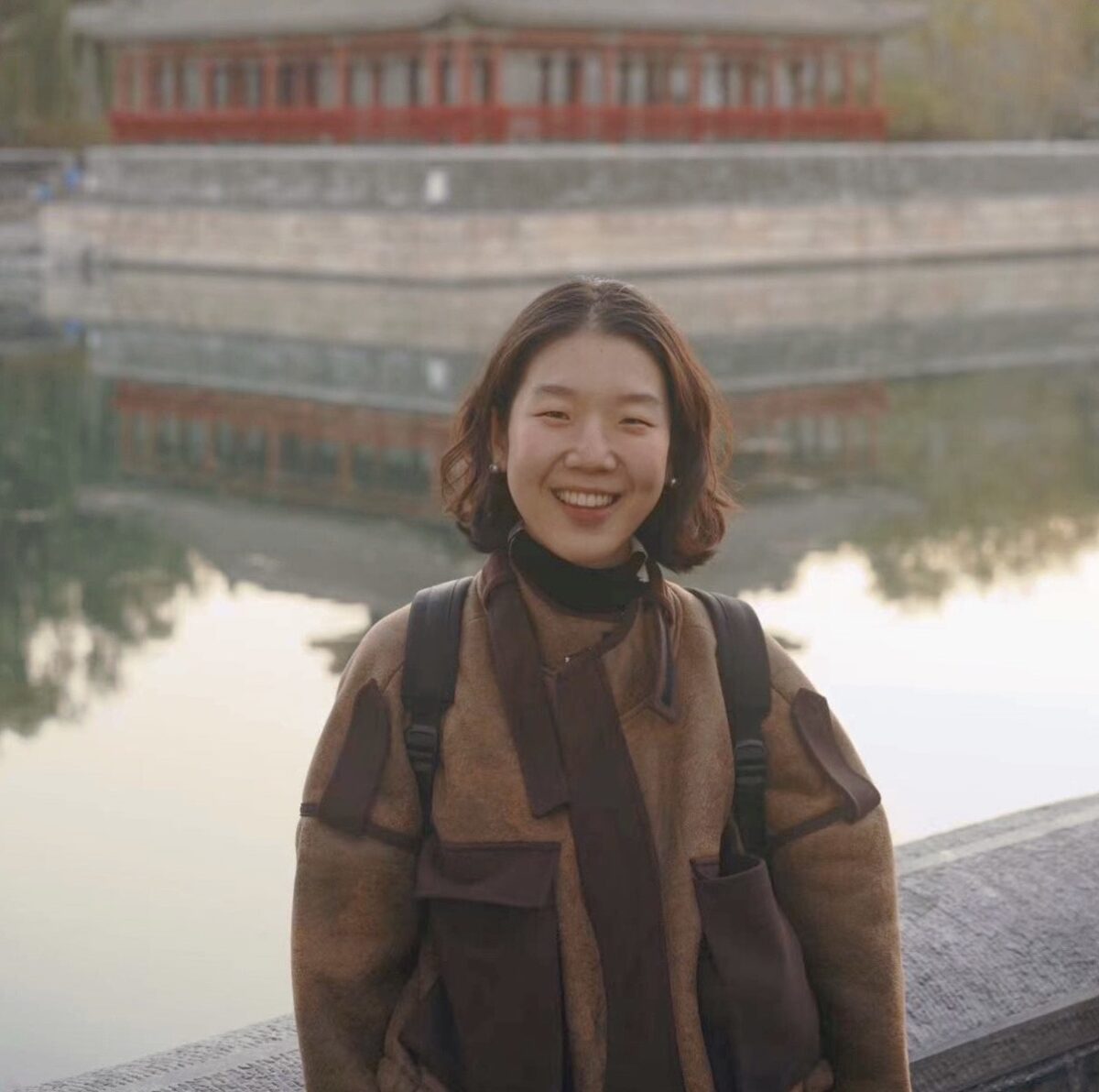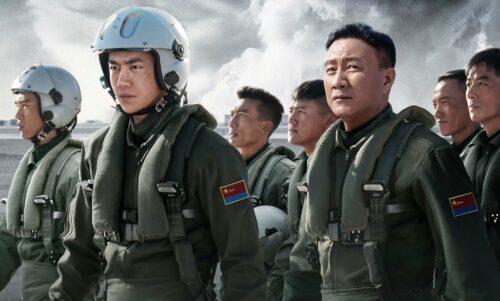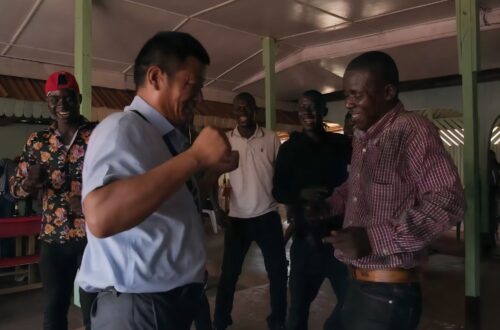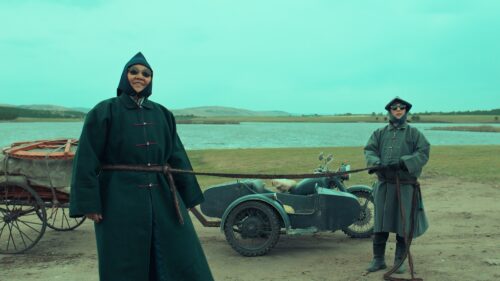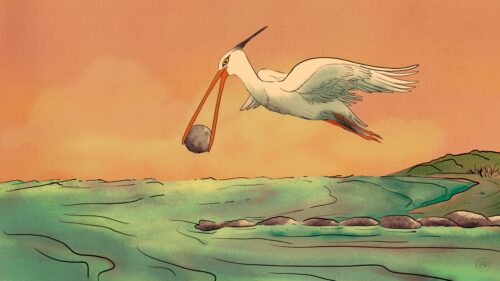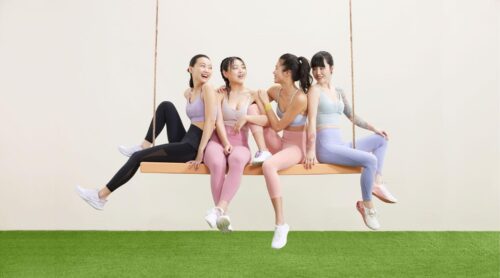For all its acclaim, ‘The Wandering Earth 2’ fails its women characters
“The Wandering Earth 2” has achieved commercial and critical success in China, but audiences have found good reasons to complain about this sci-fi blockbuster.
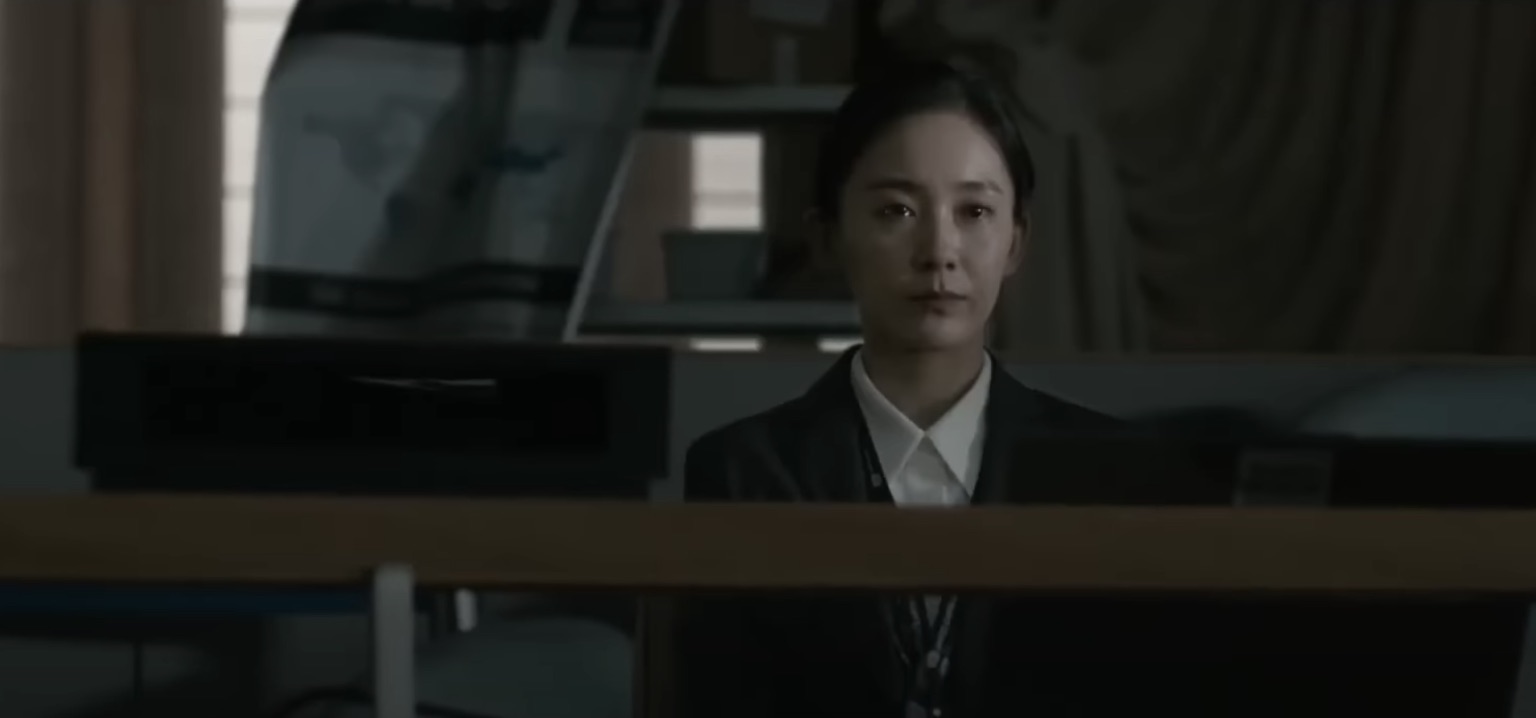
The Wandering Earth 2, a prequel to the Liú Cíxīn 刘慈欣-inspired novel-turned-movie The Wandering Earth, has won critical praise and garnered a huge domestic box office in the two months since its release on January 22. But it’s far from perfect. With five credited co-writers, you would think the movie could have done a better job rounding out its characters. Notably, its women characters.
The film has a predominantly male cast, led by Andy Lau (刘德华 Liú Déhuá) and Wú Jīng 吴京 (the original “wolf warrior,” having starred in the two Wolf Warrior movies), while the women are all in supporting roles and painfully two-dimensional. They are all mothers — a nod, whether intentional or not, toward China’s desperation to encourage women to have more babies — and all subordinates in their workplace, whose professional values are overlooked while their feminine qualities are exaggerated.
Ever since 2021, when the Chinese government began pushing for more babies, mainstream media has increased its portrayal of women characters as wives and/or mothers in “main melody” entertainment products. This has mostly backfired and been the subject of ridicule from Chinese women. When this year’s Spring Festival Gala included multiple images that propagated rosy images of marriage and children, upvoted comments on social media included, “I wonder if they are trying to reduce ‘marriage anxiety’ or create ‘marriage anxieties’?”
The Wandering Earth 2 certainly doesn’t care about lessening “marriage anxieties.” Many viewers described the film as having too much diēwèi 爹味 — similar to mansplaining — particularly among self-centered male characters who assume patriarchal roles and make decisions for others (especially women).
One scene in particular has audiences riled up, in which Liu Peiqiang (Wu Jing) tries to protect his women colleagues by locking them behind closed doors — twice. One Weibo user commented, “The female astronauts in this film are supposed to be professional space soldiers doing their job to protect the Earth, so why are they being subjected to men’s ‘protection’ without consulting their opinions first as colleagues?”
Appearing only in supporting roles, Wāng Zhì 王智 (playing Han Duoduo) and Zhū Yánmànzī 朱颜曼滋 (playing Hao Xiaoxi) are among the female characters who get the most screen time — with neither of them getting more than 20 minutes. Han — whose character appears in the form of a black-and-white photograph in the original The Wandering Earth, suggesting she plays a really important role in the story — ends up being a huge disappointment. She is introduced as a sassy woman who instantly becomes the love interest of the male lead (Wu Jing). This “boy meets girl” moment is incredibly awkward and cheesy, happening in comically slow slo-mo, and leads to a scene depicting the male astronaut’s fantasy: a marriage, then a birth. Before the audience gets to know Han as anything else — before she even opens her mouth, in fact — we see her as wife and mother.
Despite initially being portrayed as the most competent astronaut among all of the other trainees, Han’s significance to the plot is reduced to romantic interest, mother, then wife. Unsurprisingly, she does not save the Earth. In her only moment of glory, when she defeats the digital terrorists, she shouts, “You ruined my flowers!” referring to a bouquet of roses given to her by Liu.
“I know this line was comic relief, and I laughed with other audiences too,” one female viewer said after watching the film. She then added, “I laughed because this line seemed purposefully designed to deliver the message that, as a woman, you can be strong and fierce as long as you also fulfill the image of the ‘cute girl’ under the male gaze.” For others, the coquettish line “you ruined my flowers” — ending the movie’s only intense scene with a female hero — was illogical and completely undermined the character’s personality.
Meanwhile, Hao Xiaoxi is the assistant to the United Earth Government (UEG) ambassador, Zhou Zhezhi (Lí Xuějiàn 李雪健). She is a young mother — revealed through a scene of her staring at the image of a child on her phone’s lock screen — and a “teacher’s pet.” (A Russian astronaut is also shown looking at a photo of her child on her phone before a male astronaut tells her, “Don’t worry, I’ll take care of you.”) When given an opportunity to read out a public speech about China’s dedication to the Wandering Earth Project, Hao’s first reaction is to doubt if she is good enough to do so.
“The price of marriage and childcare are still presented as burdens for women…and women are the ones being seen as emotional and needing to be taken care of (by men),” one Weibo user wrote. On Douban, a Chinese website similar to Rotten Tomatoes, one user says that if the public gets too used to these two-dimensional portrayals of women, then we will create an environment akin to a frog sitting in slowly boiling water: the male-dominated narratives will become too influential to reverse.
In the end, The Wandering Earth 2 missed an opportunity. Science fiction is unique because it allows creators to show us how our present might project into the future. If our imagination allows us to imagine a world where China can save the world instead of the U.S., if our imagination allows us to imagine a world where it’s possible for all governments to work together to achieve the near-impossible mission of moving the Earth, then our imagination should also allow us to imagine a future where women are celebrated for being who they are — without being told the burden they bear is to become wives and mothers.

